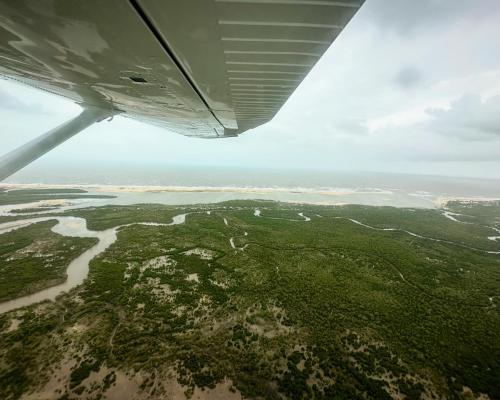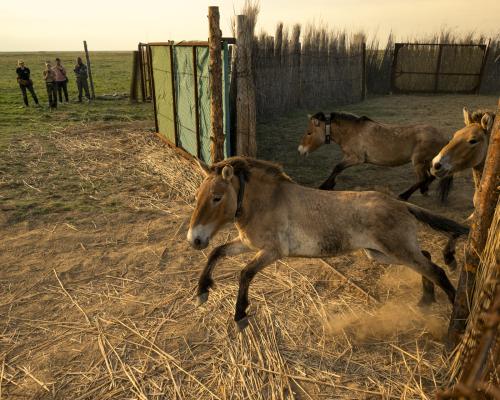A new economic analysis reveals that the planned E40 waterway would operate at a severe economic loss in the long-term, even under optimistic scenarios.
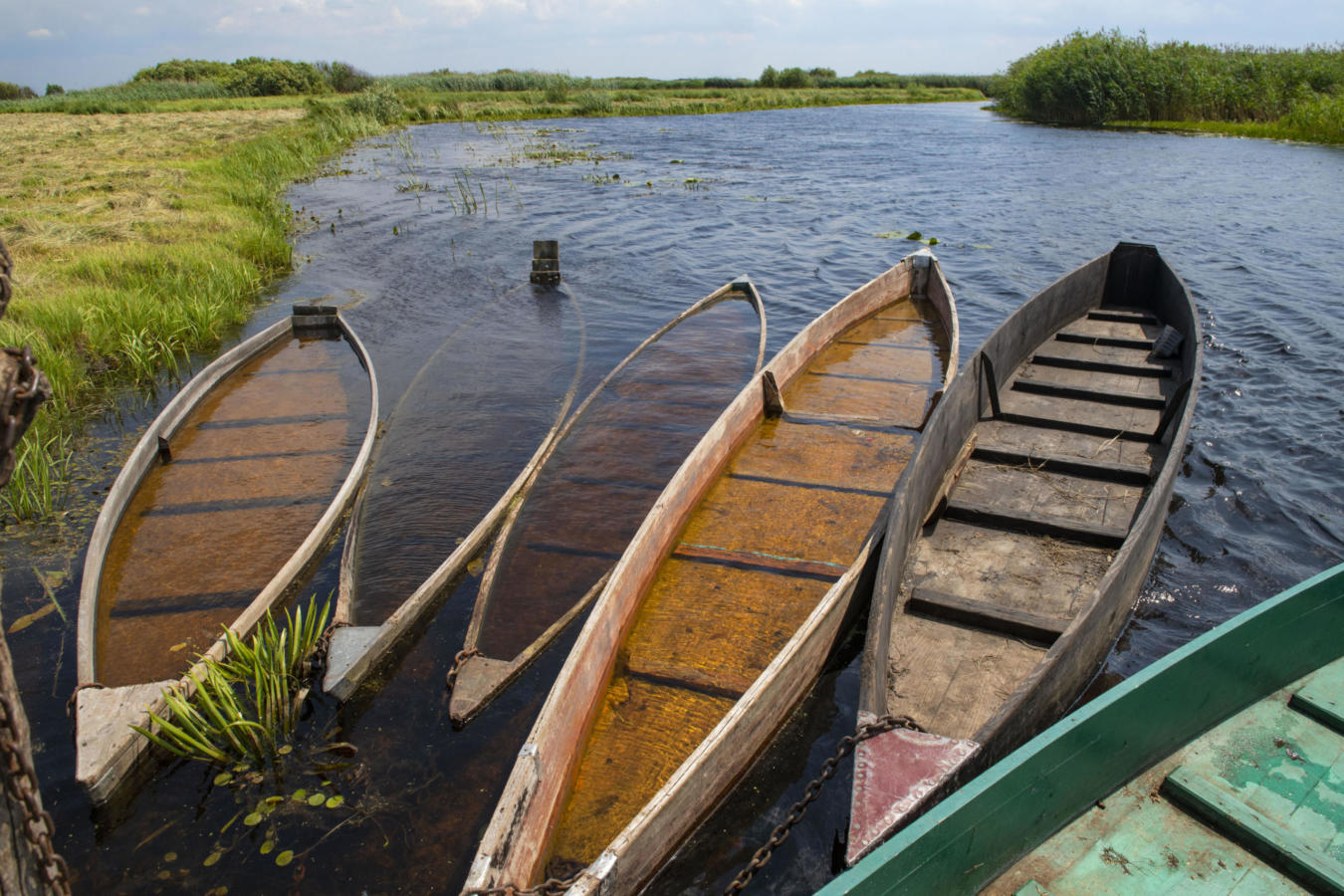
New economic report indicates E40 waterway would operate at massive loss
Published on World Wetlands Day, the economic analysis by the Netherlands-based consultancy Langhout Ecologisch Advies lays bare severe implications from the construction of the E40 waterway. The planned megaproject would connect the Baltic and Black seas through a 2,000 kilometer-long shipping channel cutting through the heart of Polesia, the largest wetland wilderness in Europe.
The report outlines long-term losses in the billions of euros that would come from the development of a key part of the proposed waterway, running from Gdansk in Poland to Brest in Belarus. The construction of the roughly 700 kilometer-long section of the waterway is too expensive to be economically viable, the report concludes. It also states that shipping would compete with green railway transport, resulting in costly environmental damage.
The report was finalized following a review by leading UK-based consultancy eftec, who supported its conclusions.
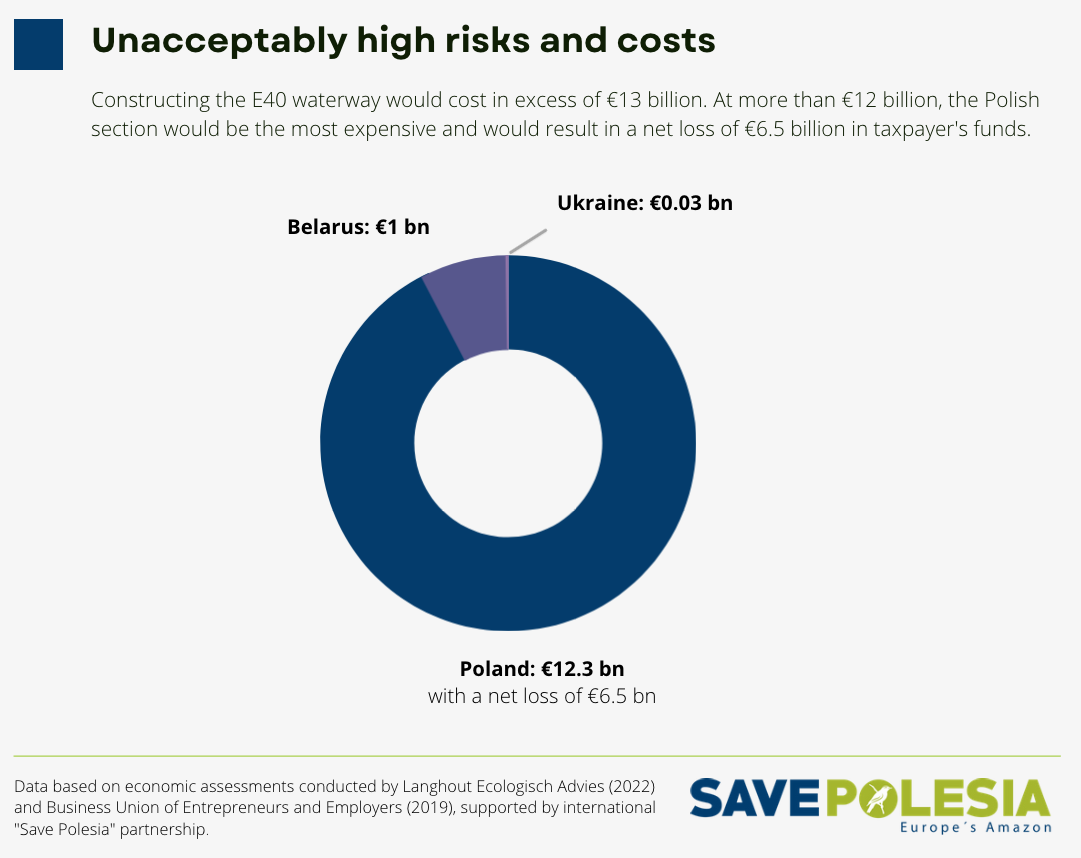
The study’s findings reinforce those of an economic analysis commissioned by the Polish government, which found that the E40 waterway will be economically unprofitable in Poland. Despite the lack of a solid case for the E40 waterway, the authors of this Polish analysis recommend proceeding with the unviable project.
In contrast, the author of today’s report recommends that plans to construct the E40 waterway should be halted and that authorities focus on alternatives such as improving the speed of rail transport and the quality of rail infrastructure.
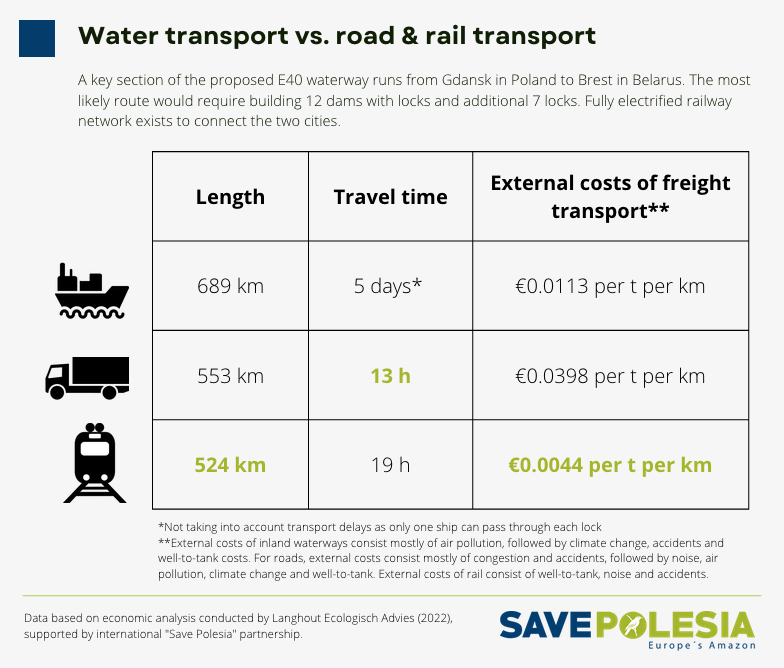
The new report by Langhout Ecologisch Advies reveals that the Polish section of the E40 waterway would cost taxpayers more than it would ever see in returns. Sensitivity analysis accounting for a large range of factors, including construction time and transport volumes, demonstrates that even under optimistic scenarios, long-term losses in the Polish section alone would amount to billions of euros of taxpayer’s money. The most likely route would end up losing taxpayers more than €6.5 billion. But because real construction costs frequently exceed estimations by a wide margin, it is likely that these losses would be far higher.
The new report also points at significant construction costs unaccounted for previously. These include major damage to natural habitats, impacts on hydrology that could drive up the cost of water supplies, and the costs of mitigation and adaptation measures for climate change.
The warnings come on the back of a recent analysis by the Business Union of Entrepreneurs and Employers in Belarus that outlined the E40 waterway would be heavily loss-making, too complicated to build, and would fail to comply with European environmental protection and climate change obligations. The new study by Langhout Ecologisch Advies reaffirms these conclusions.
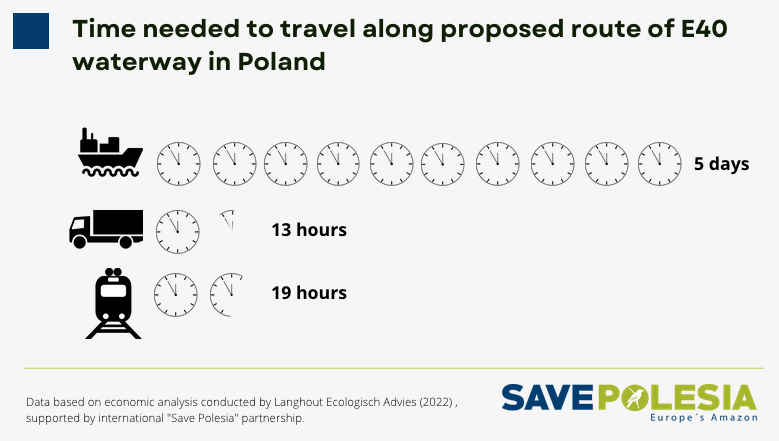
Predicting severe losses in the billions of euros for each of the E40 waterway route variations along the section between Gdansk and Brest proposed by authorities, the report authors conclude that the entire E40 waterway is unviable. Investors are warned against putting capital into the project, as it would fail to deliver benefits to society as a whole.
Authorities should instead focus on alternative transport links such as enhancements to existing road and rail connections, the report’s authors write. They state that in particular investments in the quality and speed of the rail network should be prioritized, as this would be a much more sustainable investment.
“Investments in large infrastructure projects require substantial amounts of taxpayer money and therefore need strong justification,” says Wouter Langhout, author of the new report. “This cost-benefit analysis shows that the E40 waterway section between Gdansk and Brest is not economically viable, even if we ignore the inevitable difficulties of its first years of operation. By focussing instead on upgrades to existing road and rail infrastructure, it will be possible to deliver real benefits to more people.”
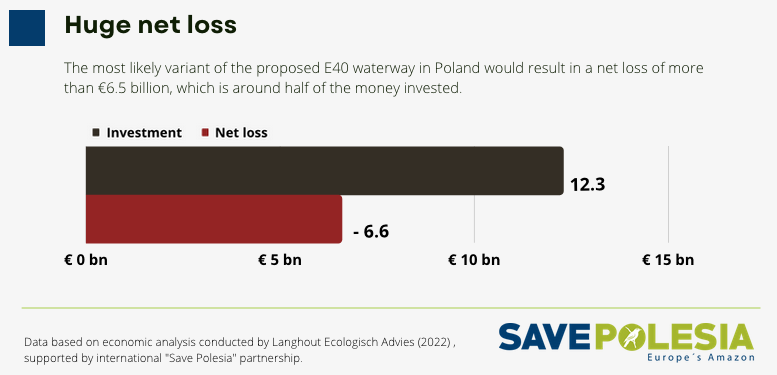
“What this new report shows is that the E40 waterway is doomed to fail because it is simply not possible to make a return on taxpayer investments,” says Helen Byron, Save Polesia Campaign Coordinator. “By scrapping plans for the E40 waterway, we will avoid a financial catastrophe for the public purse, as well as the environmental carnage that would destroy unique habitats and ecosystems in Polesia, Europe’s largest wetland wilderness area.”
Dr. Helen Byron, Save Polesia Campaign Coordinator, Frankfurt Zoological Society
Tel.: +44 (0) 7713 255675, byron@zgf.de
- Press photos. Copyright: © Daniel Rosengren / FZS
- Enjoy this video showcasing Polesia
- More information on Polesia, the waterway, the solution, and the international coalition ‘Save Polesia’ on www.savepolesia.org
Save Polesia is an international partnership of six civil society organizations. We strive to protect Polesia for the citizens of Belarus, Poland, Ukraine and wider Europe – now and in the future. We stand against the construction of the E40 waterway and for the development of nature-based tourism in Polesia
Download the 2019 expert economic study “Economic Assessment of Reconstruction Plans for the Inland waterway E40” by the Belarusian Business Union of Entrepreneurs and Employers.






